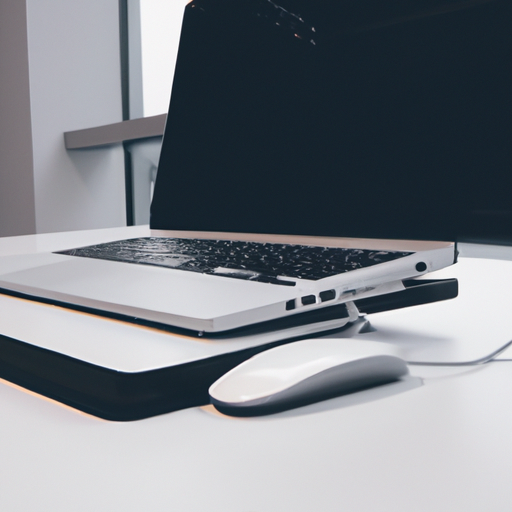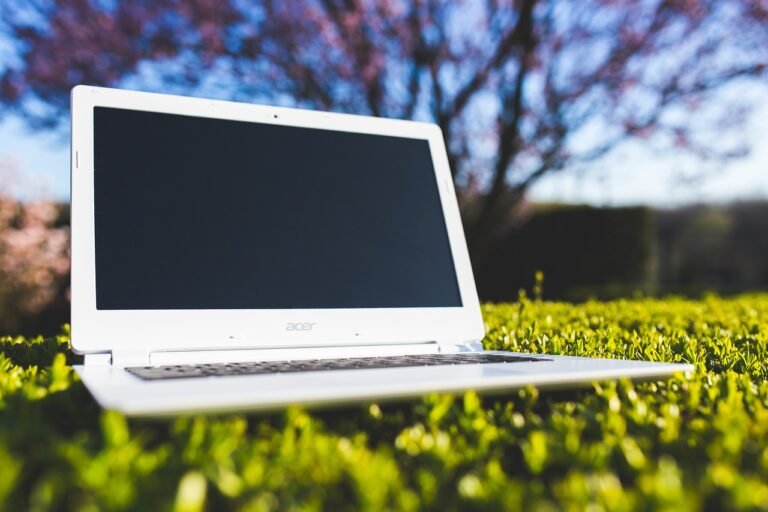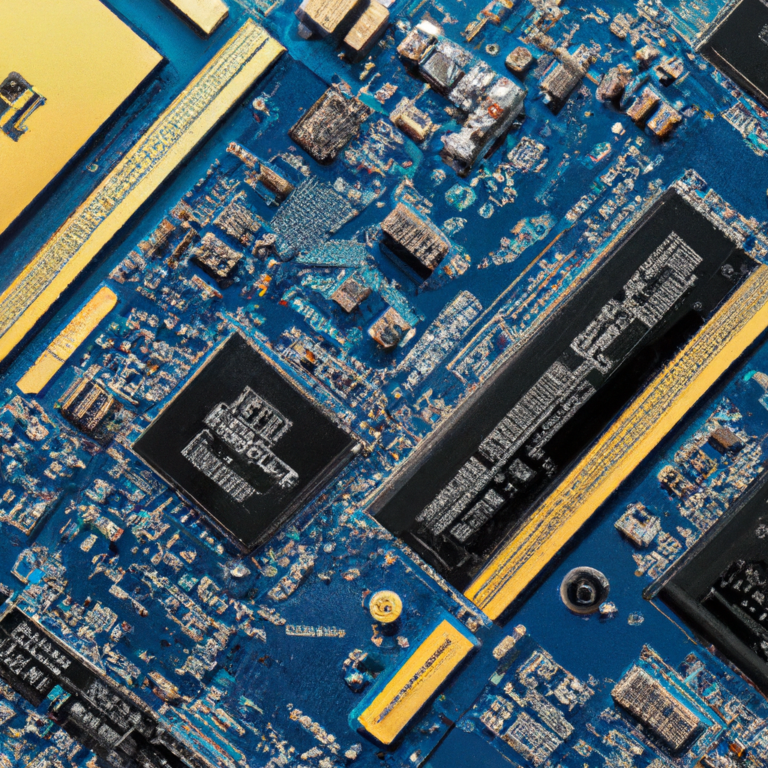What Should I Consider When Buying A Laptop For The First Time?
So, you’ve finally decided to take the leap and buy your very first laptop. Exciting times indeed! But before you dive headfirst into the seemingly endless options, it’s important to take a step back and consider a few key factors that will ensure you make the right choice. From the laptop’s purpose and specifications to your budget and preferred operating system, there’s a lot to think about. Don’t worry though, because in this article, we’ll provide you with all the guidance you need to make an informed decision and find the perfect laptop that suits your needs and preferences. Let’s get started!

This image is property of pixabay.com.
Budget
Determining your budget
When it comes to buying a laptop, one of the first things you need to consider is your budget. Determining how much you can afford to spend will help narrow down your options and prevent you from overspending. Take some time to evaluate your finances and decide on a realistic budget for your laptop purchase.
Finding the best value for your money
While it’s important to stick to your budget, you also want to ensure that you are getting the best value for your money. This means looking for laptops that offer the features and specifications you need at a reasonable price. Comparing different models and reading customer reviews can help you find a laptop that provides a good balance between price and performance.
Purpose
Identifying your specific needs
Before purchasing a laptop, it’s crucial to identify your specific needs. Are you a student looking for a laptop for schoolwork? Are you a professional in need of a powerful device for work-related tasks? Or are you simply looking for a laptop for casual everyday use? Understanding your needs will help you choose a laptop that caters to your requirements and provides the necessary features and functionalities.
Considering the intended use
Along with identifying your needs, it’s also important to consider the intended use of your laptop. Will you primarily be using it for gaming, multimedia editing, or running resource-intensive software? Different tasks require different hardware specifications, so it’s essential to select a laptop that can handle the workload associated with your intended use.
Operating System
Choosing between Windows, macOS, or Linux
When it comes to choosing an operating system (OS) for your laptop, you have several options to consider. The most popular choices are Windows, macOS, and Linux. Windows is a widely used and user-friendly OS with a vast array of software compatibility. macOS, on the other hand, is known for its seamless integration with Apple devices and is favored by many creative professionals. Linux is an open-source operating system that offers more customization options but may require more technical expertise.
Compatibility with software and hardware
When selecting an operating system, it’s important to ensure compatibility with the software and hardware you need to use. Certain software applications may only be compatible with specific operating systems, so it’s crucial to check these compatibility requirements before making a decision. Additionally, make sure that your desired laptop is compatible with any external hardware devices you may need to connect, such as printers or scanners.
Size and Weight
Determining the ideal laptop size
The size of your laptop is another important factor to consider. Laptop sizes typically range from 11 inches to 17 inches, with larger screens offering more workspace but also being bulkier and heavier. Think about how and where you plan to use your laptop. If you need a portable device that you can easily carry around, a smaller screen size may be more suitable. However, if you require a larger display for tasks such as video editing or gaming, a bigger screen size may be necessary.
Considering portability needs
Along with size, you should also consider the weight and overall portability of the laptop. If you travel frequently or carry your laptop with you for extended periods, a lightweight and portable model will be more convenient. However, if you mainly use your laptop in one location, such as at home or in the office, a slightly heavier model with more powerful specs may be a worthwhile tradeoff.

This image is property of pixabay.com.
Screen Quality
Resolutions and viewing angles
The screen quality of a laptop directly impacts your visual experience. A high-resolution display ensures crisp and clear visuals, while a lower resolution may result in pixelation and less sharpness. Consider the resolution options available and choose one that suits your needs. Additionally, viewing angles are important if you frequently share your screen or need to view it from various angles. A laptop with good viewing angles will provide consistent image quality regardless of your perspective.
Consideration for touchscreens and glossy displays
Some laptops offer touchscreen functionality, allowing you to interact with the screen using gestures and touch inputs. Touchscreens can be useful if you prefer a more hands-on approach or if you frequently use touch-oriented software. However, they may also add to the cost of the laptop. Another factor to consider is the finish of the screen. Glossy displays can enhance color vibrancy but are more prone to glare and reflections, while matte displays have an anti-glare coating but may not offer the same level of color saturation.
Performance
Processor specifications
The processor is one of the most important components of a laptop when it comes to performance. It determines how quickly the laptop can execute tasks and handle multiple processes simultaneously. Processors are typically categorized by brands (such as Intel or AMD) and model numbers (such as i5 or Ryzen 7). The higher the model number, the more powerful the processor. Consider the requirements of the software and applications you will be using and choose a processor that can handle those demands efficiently.
RAM and storage capabilities
In addition to the processor, the amount of random-access memory (RAM) and storage capacity are crucial for a laptop’s performance. RAM allows the laptop to store and access data quickly, while storage capacity determines how much data can be stored on the device. If you plan to use resource-intensive software or multitask frequently, opt for a laptop with higher RAM and storage capabilities. However, if your usage is less demanding, you can choose a laptop with lower specifications to fit your budget.

This image is property of pixabay.com.
Battery Life
Assessing average battery life
Battery life is a key consideration, especially if you need your laptop to last for extended periods without access to a power source. Assessing the average battery life of a laptop can help you determine if it meets your needs. Keep in mind that advertised battery life is often based on ideal conditions and real-life usage may vary. Reading customer reviews and checking reliable sources for battery life information can provide a more accurate understanding of a laptop’s battery performance.
Taking into account usage patterns
Your usage patterns and requirements will play a significant role in how battery life affects your overall experience. If you primarily use your laptop for light tasks like web browsing and document editing, a laptop with average battery life will likely suffice. However, if you engage in more power-intensive activities like gaming or multimedia editing, you may need a laptop with a longer battery life or be prepared to use it plugged into a power source more often.
Connectivity Options
USB ports, HDMI, and other connectors
Consider the connectivity options provided by a laptop to ensure compatibility with your external devices. USB ports are vital for connecting peripherals like printers, storage devices, and smartphones. It’s generally recommended to have multiple USB ports, including at least one USB-C port for future-proofing. Additionally, if you plan to connect your laptop to an external display, check for an HDMI or DisplayPort output. Evaluating the available connectors will help ensure that you can connect all your necessary devices without requiring additional adapters.
Wireless connectivity considerations
Wireless connectivity is essential for seamless internet access and connection to other devices. Most laptops offer built-in Wi-Fi capabilities, but it’s important to check the Wi-Fi standards supported (such as Wi-Fi 5 or Wi-Fi 6) for faster and more stable connections. If you rely on Bluetooth to connect wireless peripherals such as headphones or speakers, ensure that the laptop has Bluetooth capabilities. Having reliable wireless connectivity options keeps you connected wherever you go.

Keyboard and Trackpad
Evaluating keyboard comfort and layout
Considering that you’ll spend a significant amount of time typing on your laptop, it’s essential to evaluate the comfort and layout of the keyboard. Pay attention to key size, spacing, and key travel distance. A comfortable keyboard can enhance your typing speed and reduce fatigue during prolonged use. Additionally, evaluate the layout of the keyboard, especially if you have specific requirements such as a numeric keypad or dedicated function keys.
Ensuring responsive and accurate trackpad
The trackpad is another important aspect of a laptop’s usability. A responsive and accurate trackpad allows for smooth navigation and precise cursor control. Test the trackpad sensitivity and responsiveness before making a purchase, as a poorly functioning trackpad can be frustrating to use. Some trackpads may also support additional gestures, which can enhance productivity and ease of use.
Customer Reviews and Ratings
Researching user experiences
Before making a final decision, take the time to research customer reviews and ratings for the laptops you are considering. Hearing from other users who have firsthand experience with the laptop can provide valuable insights into its performance, durability, and any potential issues. Look for patterns in the reviews and consider both positive and negative feedback to get a well-rounded understanding of the product.
Considering trustworthy sources
When researching customer reviews and ratings, it’s important to consider the source of the information. Look for reputable technology websites or trusted online retailers that have verified customer reviews. These sources are more likely to provide reliable and unbiased feedback, helping you make a more informed decision. Be cautious of reviews that seem overly positive or negative, as they may be biased or inauthentic.
In conclusion, buying a laptop for the first time requires careful consideration of various factors. Determining your budget, identifying your needs, and considering the intended use of the laptop are all crucial steps in the decision-making process. Choosing the right operating system, size and weight, screen quality, performance specifications, battery life, connectivity options, keyboard and trackpad comfort, and researching customer reviews will help ensure that you find a laptop that meets your requirements and provides the best value for your money. So, take your time, do your research, and make an informed decision that suits your needs and preferences. Happy laptop shopping!







